Our company's main product, geomembrane, is a geosynthetic material used in engineering construction. It is made of high-density polyethylene (HDPE) material and has functions such as waterproofing, isolation, and reinforcement. Its main function is to form a waterproof layer in engineering projects to prevent water from penetrating into underground structures or soil to protect the safety and stability of underground structures. Geomembranes are widely used in fields such as water conservancy projects, road projects, and environmental protection projects, and play an important role in waterproofing, anti-seepage, isolation, and reinforcement.
Geomembranes are widely used in various engineering and environmental applications, and agricultural production is one of its main application areas.
In agricultural production, geomembranes are mainly used for anti-seepage treatment of farmland irrigation and water conservancy facilities such as channels, reservoirs, and ponds to improve irrigation efficiency and water resource utilization.
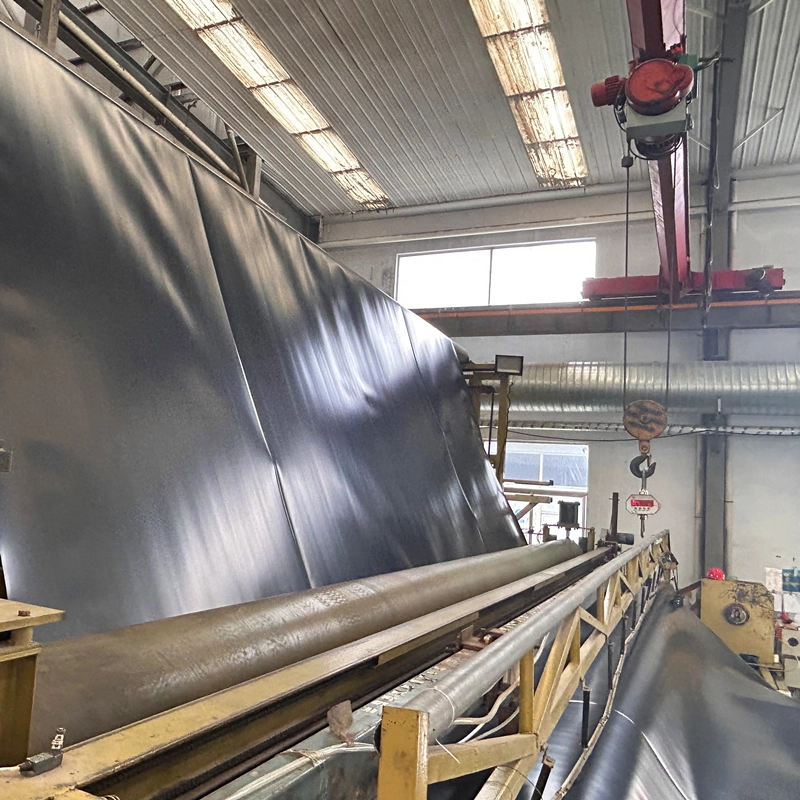
Products in Haoyang geomembrane production workshop are in production
Geomembrane has the following advantages in agricultural production:
1. Soil protection and moisture retention: Geomembrane can cover the surface of the land to prevent the soil from being eroded by wind, water, or drying out in the sun, protecting soil quality, reducing water evaporation, and helping to keep the soil moist.
The advantages of geomembrane in soil protection and moisture retention in agricultural production are mainly reflected in the following aspects:
(1) Geomembrane can cover the soil surface to form a protective film, which can effectively prevent the soil from being weathered, eroded and washed away, protect the stability of the soil structure, reduce soil erosion and loss, thereby protecting the farmland ecological environment and improving the fertility of the land. degree and durability.
(2) Geomembrane has good moisture retention properties, which can prevent water evaporation in the soil, reduce soil water loss, maintain soil moisture, provide a good growth environment, and is conducive to the growth and development of crops, increasing yield and quality.
(3) Geomembrane covering the soil surface can also reduce the growth of lawns and vegetation, reduce the growth rate of weeds, reduce weeding and management costs, and improve the economic benefits and management efficiency of farmland.
(4) Geomembrane has the characteristics of corrosion resistance, wear resistance, high temperature resistance, etc. It can be used in farmland environment for a long time without frequent replacement, saving maintenance costs and human and material investment.
In summary, geomembranes can improve the fertility and water utilization of the land through soil protection and moisture retention in agricultural production, ensure the normal growth and stable yield of crops, and provide reliable technical support and guarantee for agricultural production.
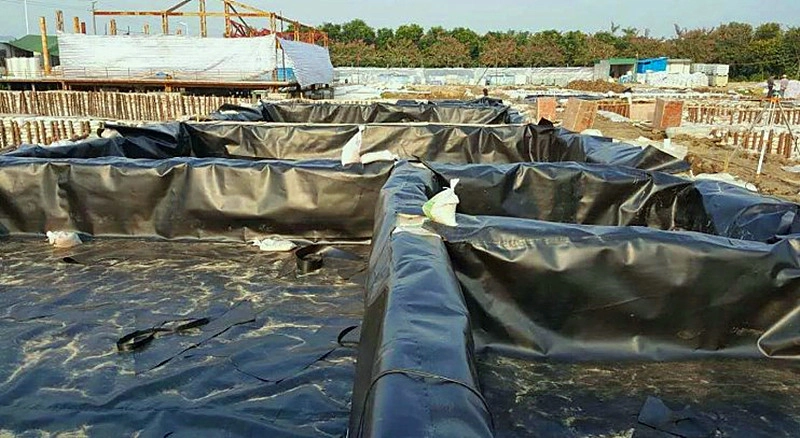
Application of geomembrane in agricultural production: construction of lotus root pond
2. Soil temperature regulation: Geomembrane covering the land surface can form a greenhouse effect, increase soil temperature, help promote crop growth and extend the planting season.
The advantages of geomembrane in regulating soil temperature in agricultural production are mainly reflected in the following aspects:
(1) Insulation effect: Geomembrane can cover the soil surface to form a protective film, which effectively prevents the heat inside the soil from escaping outward and plays a thermal insulation role. Especially in the cold season, it can slow down the decline of soil temperature, increase soil temperature, and provide a good growing environment for crop growth.
(2) Temperature regulating effect: Geomembrane has good heat transfer performance and can absorb solar radiation heat during the day to increase the soil temperature; at night, the geomembrane can gradually release heat to keep the soil temperature relatively stable. . Such temperature regulation is beneficial to promoting crop growth and development and improving yield and quality.
(3) Early spring farming: Covering with geomembrane can increase soil temperature in advance in spring, accelerate soil thawing, advance spring sowing and farming, extend the agricultural production cycle, and increase crop harvest time.
(4) Prevent soil overheating: In high-temperature weather in summer, geomembranes can prevent the soil from being exposed to excessive solar radiation, reduce the temperature increase on the soil surface, and avoid the adverse effects of soil overheating on crop growth.
In summary, geomembranes regulate soil temperature in agricultural production, provide a good growth environment, ensure the growth and development of crops, improve yield and quality, and provide important technical support and guarantee for agricultural production.
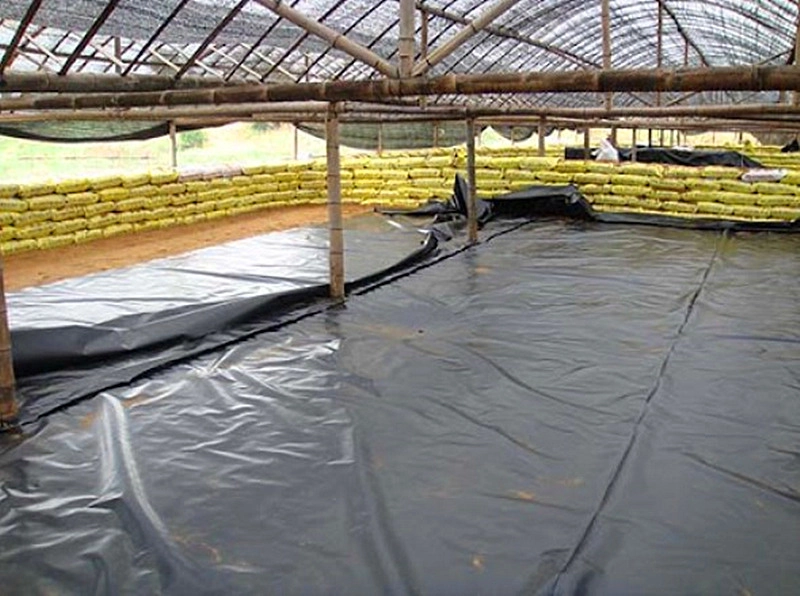
Application of geomembrane in agricultural production: construction of indoor water reservoirs
3. Land consolidation and improvement: Geomembrane can be used in land consolidation and improvement projects to repair damaged land, improve soil quality, and increase land utilization.
The advantages of geomembrane in land consolidation and improvement in agricultural production are mainly reflected in the following aspects:
(1) Soil protection: Geomembrane can cover the land surface to form a protective layer to prevent the soil from being eroded by natural factors such as rain erosion and wind erosion. It can effectively protect the soil structure and fertility, reduce soil erosion, and maintain soil quality.
(2) Soil improvement: Geomembrane can effectively prevent the loss and volatilization of nutrients in the soil, maintain the nutrients in the soil, help improve soil fertility, increase soil fertility levels, and provide a more suitable soil environment for crop growth.
(3) Soil moisture retention: Geomembrane can reduce the evaporation and loss of water on the soil surface, keep the soil moist, extend the retention time of water in the soil, improve the water retention capacity of the soil, reduce the adverse effects of drought on crops, and is beneficial to crop growth.
(4) Land remediation: Geomembranes can be covered on the surface of land that is not suitable for planting, such as sandy land, rocky land, etc., by preventing soil erosion and improving the soil environment, so that land that is originally unsuitable for agricultural production can be utilized for land remediation and Improve land utilization and productivity.
(5) Land insulation: In the cold season, geomembrane can play a role in insulation, prevent the temperature in the soil from being too low, protect microorganisms and crop roots in the soil, promote the decomposition of soil organic matter and the release of nutrients, and help improve the quality of the land. fertility and productivity.
In summary, geomembranes have the advantages of land consolidation and improvement in agricultural production. They can effectively protect and improve the soil environment, improve the fertility and productivity of the land, and provide important technical support and guarantee for agricultural production.
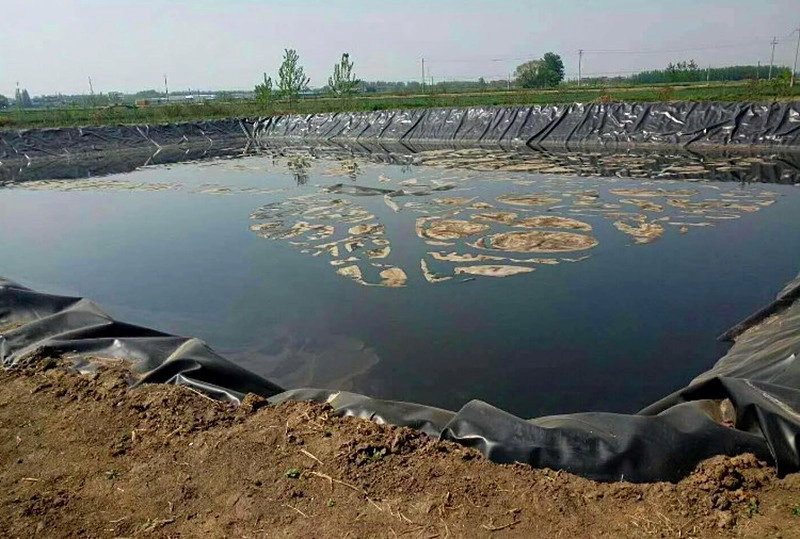
Application of geomembrane in agricultural production: Effect after construction of reservoir
4. Water resources management: Geomembranes can be used in irrigation systems and water resources management to prevent irrigation water loss and groundwater waste, improve irrigation efficiency, and save water resources.
The advantages of geomembrane in water resources management in agricultural production are mainly reflected in the following aspects:
(1) Moisture control: Geomembrane can be used as a covering material to cover the soil surface or underground, effectively reducing soil water evaporation and leakage, maintaining soil moisture, reducing water loss in the soil, and helping to improve the water retention performance of the soil. , reduce the amount of irrigation water and achieve rational utilization and conservation of water resources.
(2) Soil drainage: Geomembrane has a certain drainage function and can be laid on the soil surface or underground to prevent surface water accumulation and underground water seepage, improve the drainage performance of the soil, and prevent waterlogging caused by water accumulation and excessive soil moisture. The phenomenon of crop death helps ensure the normal production of farmland and the growth of crops.
(3) Land remediation: Geomembranes can be used in land remediation projects to cover land surfaces that are not suitable for planting, such as sandy land, rocky land, etc., to improve land utilization and productivity by preventing soil erosion and improving the soil environment. Provide better soil environment and water resources management conditions for agricultural production.
(4) Water body protection: Geomembrane can be used as a water body protection material to prevent water body pollution and waste of water resources. It covers the surface or bottom of the water body to prevent harmful substances in the sediment from penetrating into the water body and protect the water body ecological environment. , maintain the clean and sustainable use of water resources.
In summary, geomembranes have the advantages of water resources management in agricultural production. They can effectively regulate soil moisture, improve soil drainage, improve land utilization and water body protection, and provide important technical support and guarantee for agricultural production.
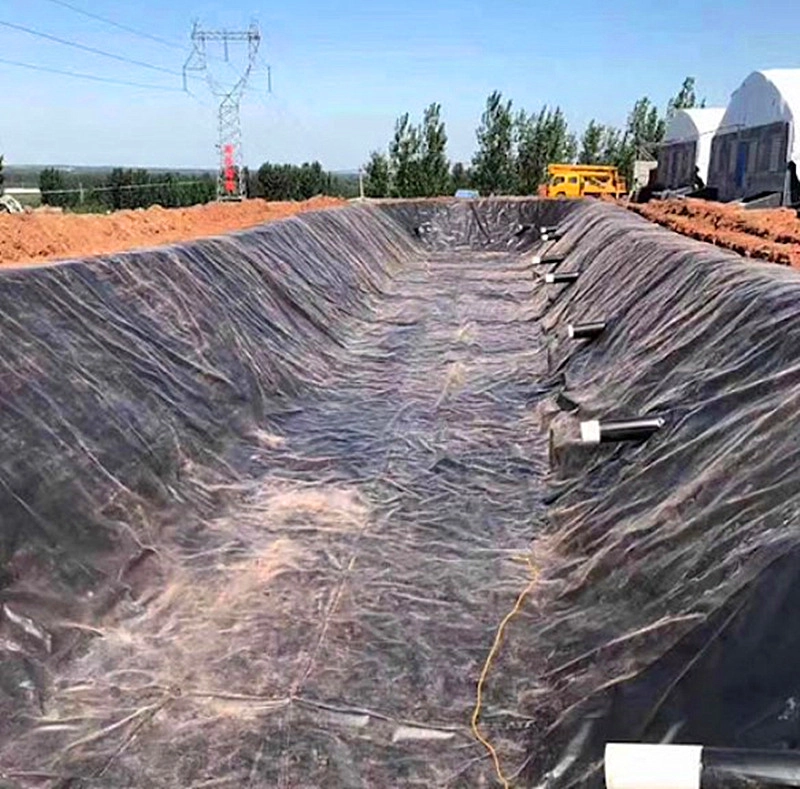
Application of geomembrane in agricultural production: fish pond construction
5. Land solidification and prevention of soil erosion: In land solidification and improvement projects such as farm roads and farmland water conservancy projects, geomembranes can be used as ground reinforcement layers to prevent soil erosion and collapse and improve land stability.
The advantages of geomembrane in agricultural production to solidify land and prevent soil erosion are mainly reflected in the following aspects:
(1) Land solidification: Geomembrane can be laid on the land surface or underground to form a protective film, which can effectively prevent the loss and loosening of soil particles and improve the firmness and stability of the soil. By solidifying the soil, geomembranes can reduce soil wind erosion, water erosion and scour, protect land resources, and maintain the stability of the land ecological environment.
(2) Prevent soil erosion: The coverage of geomembrane can effectively prevent rain and surface water from scouring and eroding the soil, reduce soil erosion, and prevent geological disasters and loss of land resources caused by soil erosion. Especially on slopes and exposed land that are prone to erosion, laying geomembranes can effectively protect the soil, maintain a good ecological environment of farmland, and promote the restoration of vegetation and the sustainable use of land.
(3) Improve land utilization: Through the solidification and anti-corrosion effects of geomembrane, soil loss and damage can be reduced, the fertility and productivity of the land can be improved, the usable area of the land can be increased, the allocation of land resources can be optimized, and the sustainability of the land can be achieved. Utilize and preserve and increase value.
In summary, geomembranes have the advantages of land solidification and soil erosion prevention in agricultural production. They can effectively protect land resources, maintain the stability of farmland ecological environment, and improve land utilization and economic benefits.
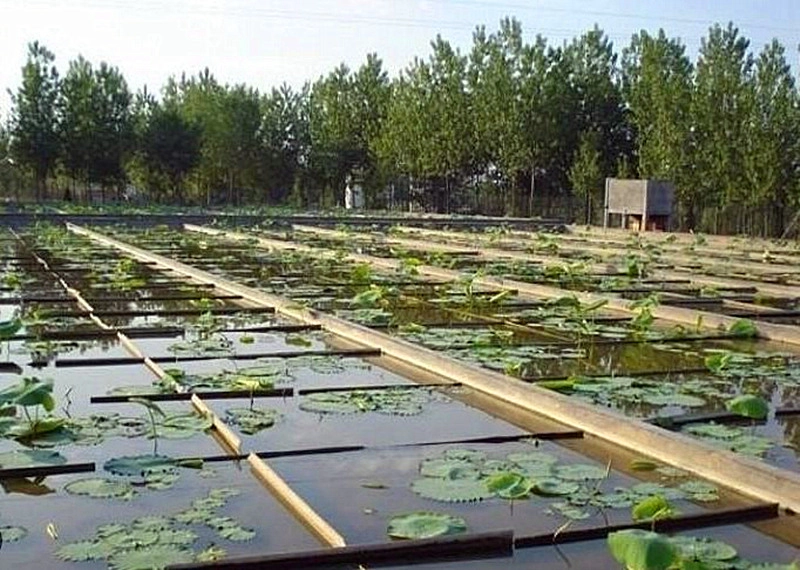
Application of geomembrane in agricultural production: lotus pond
6. Agricultural waste treatment: Geomembrane can be used for agricultural waste treatment and landfill cover to prevent waste from contaminating soil and water sources and protect the environment.
The advantages of geomembrane in agricultural waste treatment in agricultural production are mainly reflected in the following aspects:
(1) Prevent pollution: Geomembrane can be used as a covering layer for waste dumps to prevent harmful substances in the garbage from leaking into the soil and groundwater, effectively reducing pollution to the surrounding environment and protecting the safety of land and water resources.
(2) Anti-penetration: Geomembrane has good anti-penetration performance, which can prevent liquids in waste from leaking into the ground, avoid waste leakage from contaminating groundwater and surrounding soil, and keep the ecological environment of the land and water quality clean.
(3) Improve waste utilization rate: By laying geomembrane rationally, we can effectively reduce the leakage and loss of waste, maintain the integrity and availability of waste, and improve the reuse rate and resource utilization efficiency of waste. Reduce the negative impact of waste on the environment.
(4) Increase processing capacity: The use of geomembrane can effectively increase the processing capacity of waste dumps, reduce the storage area and volume of waste, optimize the layout and design of garbage dumps, and improve the processing efficiency and resource utilization of garbage dumps. .
In summary, geomembranes have the advantages of processing agricultural waste in agricultural production. They can effectively prevent pollution and leakage, improve waste utilization and processing capacity, protect the safety of land and water resources, and promote the recycling of agricultural waste. Resource utilization and environmental protection.
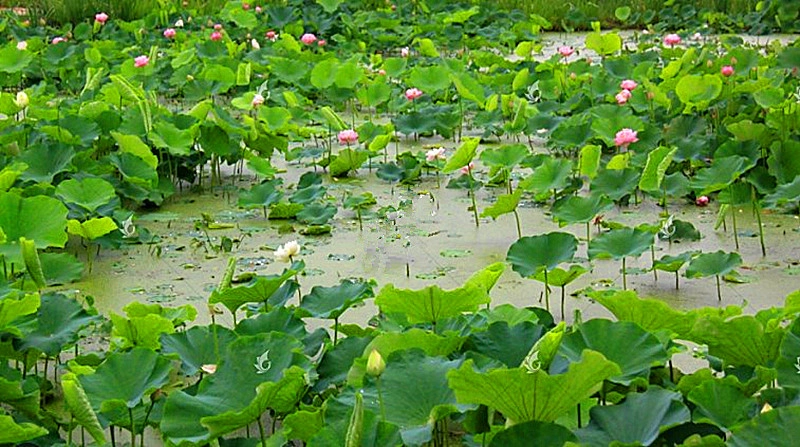
Application of geomembrane in agricultural production: the effect of lotus pond
In summary, geomembranes have the advantages of protecting soil, regulating soil temperature, water resources management, land remediation, preventing soil erosion and waste disposal in agricultural production. It is important for improving agricultural production efficiency, protecting the ecological environment and sustainable development. development is of great significance.
![]() 0.75 Double-sided smooth HDPE geomembrane.pdf
0.75 Double-sided smooth HDPE geomembrane.pdf
![]() 1mm Single-texture HDPE geomembrane.pdf
1mm Single-texture HDPE geomembrane.pdf
![]() 2mm Single-texture HDPE geomembrane.pdf
2mm Single-texture HDPE geomembrane.pdf
![]() 1 Double-sided smooth HDPE geomembrane.pdf
1 Double-sided smooth HDPE geomembrane.pdf
239.webp)
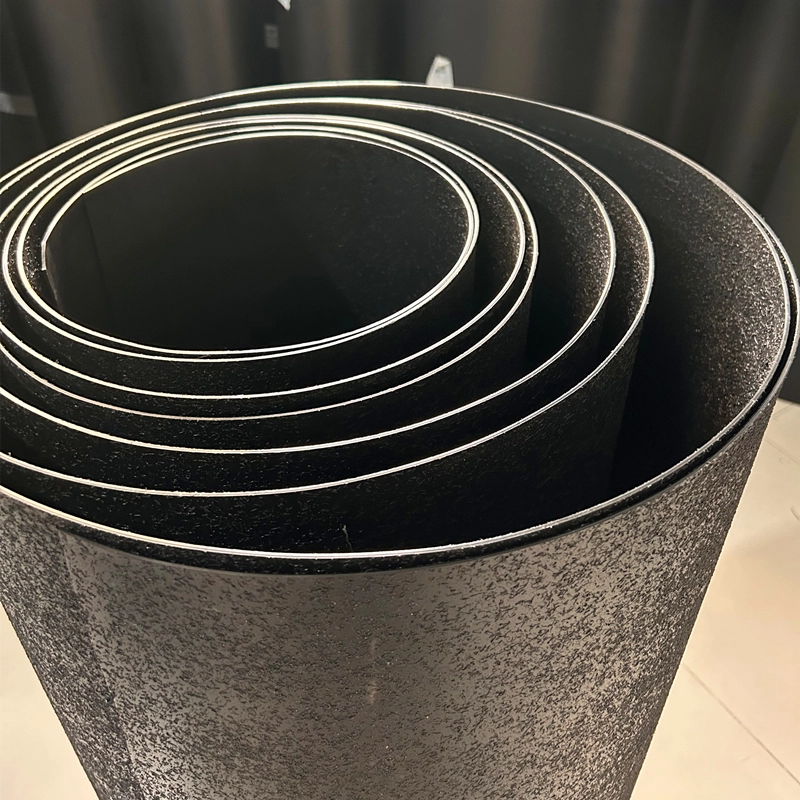
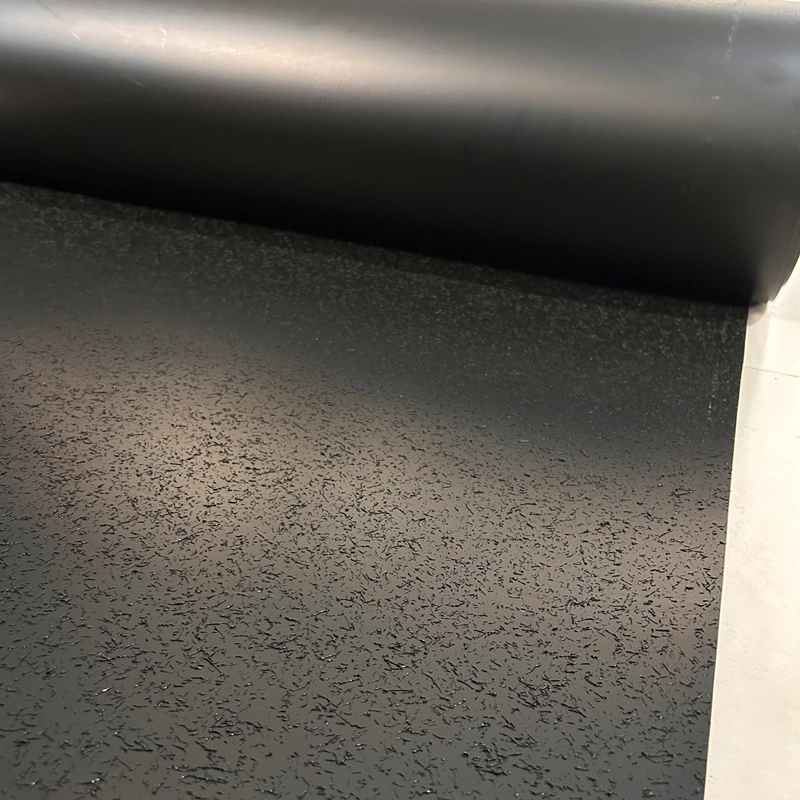
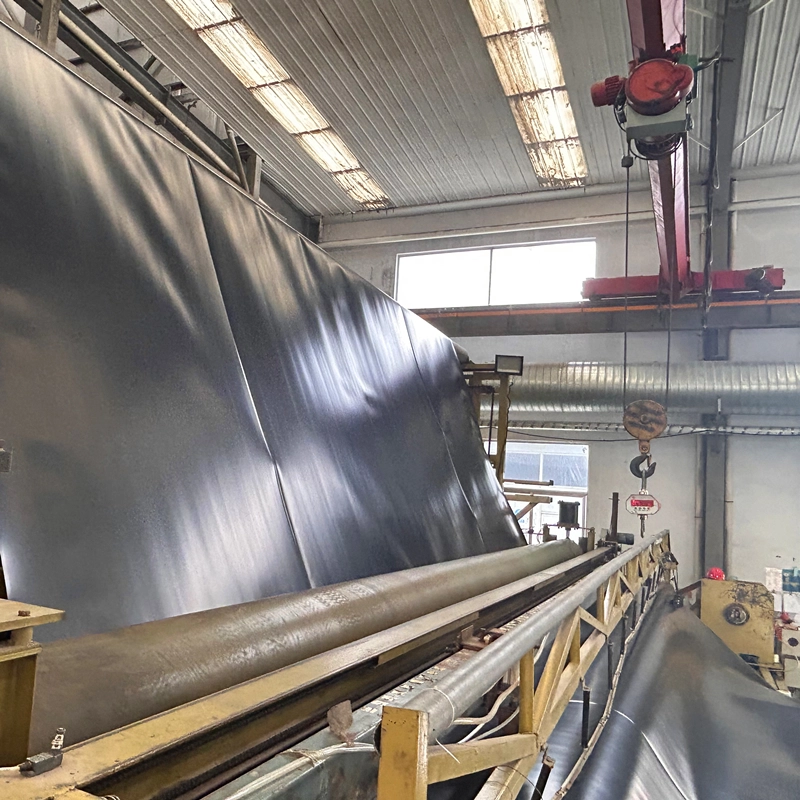
503.webp)
759.webp)
942.webp)
237.webp)
106.webp)